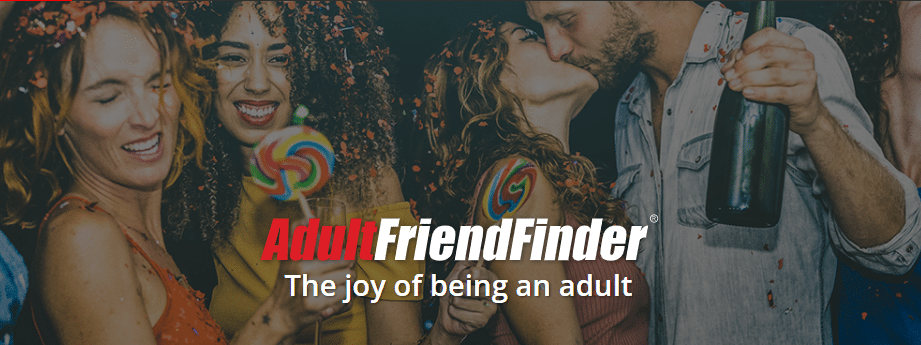Emotional Impact of Hookups

In today’s fast-paced dating landscape, I have observed that hookups have become a common experience for many individuals.
Whether it’s a one-night stand, friends with benefits, or a casual booty call, these interactions can provide excitement while also carrying significant emotional consequences.
This article examines the various types of hookups, their prevalence, and the emotional effects they can have, ranging from feelings of regret and low self-esteem to challenges in forming long-term relationships.
I will provide strategies for coping with these impacts and discuss how society can promote healthier attitudes toward casual connections.
Together, we will navigate the complexities of modern relationships and their emotional ramifications.
What Are The Different Types Of Hookups?
In the realm of modern dating, I find it essential to understand the various types of hookups to navigate the complexities of intimacy and connection effectively. From one-night stands to friends with benefits, each form of casual relationship carries its own emotional nuances and implications for personal growth and self-discovery.
The distinctions between these relationships often shape individual expectations and emotional maturity, potentially impacting self-esteem and mental health. Therefore, I believe it is crucial to explore these different hookup types to gain a clearer understanding of their emotional impact and the potential risks involved in casual dating.
1. One-Night Stand
A one-night stand represents a casual sexual encounter with no expectations for a future relationship, typically marked by its transient and fleeting nature.
While this scenario may provide immediate physical gratification, it also introduces a complex emotional landscape. Many individuals find themselves navigating feelings of emotional detachment that can emerge after such encounters, resulting in responses that range from elation to regret. The allure of fleeting sexual experiences can sometimes overshadow deeper emotional needs, leaving one to question whether true satisfaction was achieved.
The aftermath of a one-night stand often brings attention to self-esteem issues. Individuals may reflect on their choices, contemplating whether the encounter aligns with their personal values or enhances their sense of worth. Ultimately, the implications of casual intimacy can vary considerably, underscoring the importance of introspection in navigating these types of relationships.
2. Friends With Benefits
I find that friends with benefits navigate a unique space where friendship and sexual attraction coexist, allowing for intimacy without the commitment of a traditional relationship.
In this arrangement, I often enjoy the physical pleasures while also valuing the platonic bond. However, as emotional intimacy deepens, complexities can arise. The absence of clear relationship dynamics may lead to misunderstandings, particularly if one party begins to develop feelings that go beyond friendship.
It’s crucial for those involved to communicate openly about their boundaries and expectations, ensuring that both individuals remain aligned. Yet, the risk of attachment is always present, making it essential to proceed with caution, as navigating these emotions can ultimately redefine the nature of the connection.
3. Booty Call
A booty call typically involves reaching out to an acquaintance for a casual sexual encounter, prioritizing impulsivity over emotional connection. While this arrangement may seem liberating, it often reveals deeper desires and a longing for intimacy that individuals may not initially recognize.
Casual encounters can certainly provide a thrilling escape; however, they also prompt important considerations regarding personal boundaries and the emotional consequences that may arise. Engaging in such relationships can evoke a blend of exhilaration and anxiety, highlighting the psychological effects of risk-taking.
For many, the aftermath can lead to confusion about feelings or expectations, as the line between physical attraction and emotional attachment can easily become blurred.
How Common Are Hookups?
In today’s society, I have observed that hookup culture has gained significant traction, largely influenced by dating apps and evolving social norms surrounding casual relationships.
Research indicates that nearly 60% of young adults have engaged in casual hookups, highlighting a generational shift toward non-traditional dating practices. This trend can be attributed to the connectivity provided by technology, which enables individuals to meet and engage in ways that were previously unimaginable.
Despite its growing acceptance, social stigma around such encounters persists, leading many to navigate their emotions with care. I find that emotional awareness is essential, as individuals consider their expectations regarding intimacy and connection.
Ultimately, understanding these dynamics offers valuable insights into the motivations and challenges faced by those participating in hookup culture.
What Are The Emotional Effects Of Hookups?
I have observed that the emotional effects of hookups can vary significantly. Many individuals experience feelings of regret, loneliness, and anxiety as they navigate the complexities of their choices.
1. Feelings Of Regret
Feelings of regret often arise after a hookup, especially when I take a moment to reflect on my emotional readiness and the expectations I had going into the experience. This introspection can uncover deeper underlying issues, such as a lack of emotional maturity or diminished self-worth.
I may find myself grappling with impulsive decisions that not only cloud my judgment in the moment but also lead to long-term emotional consequences.
These instances of regret can have a detrimental effect on my self-esteem, prompting me to question my value and decision-making abilities. When I struggle to navigate my feelings and desires effectively, it often amplifies my insecurities, creating a cycle where past choices influence my future actions.
Ultimately, gaining an understanding of these triggers is essential for fostering healthier relationships and making more enableed choices.
2. Negative Self-Esteem
Engaging in casual relationships can sometimes lead to a decline in self-esteem, as I may feel undervalued or emotionally detached after such encounters. This experience often arises from the transient nature of these interactions, where the absence of commitment can leave me questioning my worth and desirability.
As I navigate the complexities of relationship dynamics, I might find myself trapped in a cycle of seeking validation from others, only to feel more isolated when those connections lack depth. Developing emotional awareness is essential; by understanding my feelings and prioritizing self-reflection, I can cultivate a healthier perspective that promotes true emotional fulfillment.
Recognizing these patterns allows me to reclaim my sense of self-worth and foster more meaningful connections.
3. Emotional Disconnection
Emotional disconnection is a prevalent issue in hookup culture, where the absence of commitment often leads to feelings of loneliness and challenges with intimacy.
This disconnect typically arises from a superficial emphasis on physical attraction, overshadowing the importance of cultivating genuine emotional bonds. During casual encounters, I may find myself prioritizing immediate gratification, which can unintentionally push aside the need for deeper connections.
Over time, these experiences can create psychological barriers that impact how I approach future relationships. When the foundation of intimacy is fragile, it becomes difficult to trust or engage fully, leaving me cautious about deeper emotional investments.
This cycle not only inhibits the development of fulfilling relationships but can also contribute to a lingering sense of isolation as I navigate the complexities of today’s dating culture.
4. Fear Of Intimacy
I have observed that the fear of intimacy often manifests in casual relationships, where individuals struggle with vulnerability and emotional readiness to form deeper connections. This fear can significantly inhibit relational satisfaction, as genuine closeness requires a level of trust that many find daunting.
In my experience, individuals grappling with these issues tend to erect emotional barriers, distancing themselves from potential partners who seek meaningful engagement. Consequently, this leads to a cycle of superficial interactions, leaving a lingering sense of loneliness and unfulfilled emotional needs.
Overcoming these obstacles requires a degree of emotional maturity, including the acknowledgment of one’s own fears and the willingness to confront them. By cultivating trust and understanding, individuals can begin to dismantle these barriers, ultimately paving the way for more enriched and fulfilling relationships.
5. Confusion About Relationship Status
Confusion about relationship status often arises in hookup culture, blurring the lines between desire and emotional connection, which can leave individuals feeling unsettled.
In casual relationships, it’s not uncommon for one person to develop deeper feelings while the other remains focused solely on physical attraction. This dynamic frequently leads to mixed signals and unclear expectations, making it challenging for both parties to navigate their emotional landscape.
The complexities of love versus lust further complicate the situation, as individuals may grapple with conflicting desires and intentions. As a result, the implications for mental health can be significant, with anxiety and insecurity emerging as partners struggle to communicate their needs and boundaries effectively.
Ultimately, achieving emotional clarity becomes an essential goal in these uncertain interactions.
How Can Someone Cope With The Emotional Impact Of Hookups?
Coping with the emotional impact of hookups requires me to implement effective strategies, including open communication, prioritizing self-care, and seeking emotional support from trusted friends and family.
1. Communicate Your Boundaries And Expectations
Effective communication regarding boundaries and expectations is crucial for navigating the complexities of casual relationships and minimizing emotional fallout. When I articulate my needs and limits clearly, I create an opportunity for healthier interactions and help prevent misunderstandings that could lead to unnecessary hurt.
This clarity becomes particularly essential in relationships where emotional connections can vary significantly, as it enables each person to manage their expectations and feelings responsibly. Emotional maturity plays a significant role in these discussions, as it involves recognizing my own vulnerabilities and being open to understanding the perspectives of others.
By fostering such dialogues, both parties can enhance their relationship dynamics, ultimately leading to a more respectful and fulfilling connection.
2. Practice Self-Care
Practicing self-care is essential for maintaining my emotional health, especially after navigating the complexities of hookups. It enables me to prioritize my well-being and personal growth.
In today’s fast-paced world, engaging in self-care not only assists me in processing complex emotions but also enhances my emotional resilience. By allocating time for activities that promote mindfulness, such as meditation or journaling, I can gain valuable insights into my emotional landscape. This self-reflection allows me to confront lingering feelings, recognize patterns, and build healthier relationships with myself and others.
Incorporating regular exercise, nurturing hobbies, and even seeking therapeutic support further strengthens my mental health. It reaffirms the importance of prioritizing my emotional needs, particularly during times of transition.
3. Seek Support From Friends And Family
Seeking support from friends and family provides a vital network for emotional fulfillment and guidance while navigating the challenges of casual relationships.
These connections become even more critical during times of emotional turmoil, offering a sense of belonging and understanding. Trusted relationships not only assist individuals in processing their feelings but also promote the development of emotional awareness.
Through open conversations, I can learn valuable coping strategies that enhance mental resilience. Ultimately, leaning into these supportive bonds fosters a deeper understanding of myself and strengthens my ability to navigate life’s uncertainties, reinforcing the belief that no one should face their struggles in isolation.
4. Consider Therapy
Considering therapy has proven to be an effective approach for addressing the emotional complexities that arise from hookups and for enhancing overall mental health.
By seeking professional support, I have found that I can develop greater emotional awareness and gain a healthier understanding of my responses. This journey often leads to significant personal growth, allowing me to navigate the ups and downs of relationships with increased emotional maturity.
A therapist can assist me in identifying coping strategies to manage the aftermath of such experiences, fostering resilience and a clearer sense of self. Ultimately, this can transform how I approach future connections, promoting healthier interactions and a more fulfilling emotional landscape.
What Are The Long-Term Effects Of Hookups On Emotional Health?
I recognize that the long-term effects of hookups on emotional health can present in several ways, potentially influencing my ability to establish meaningful relationships and manage trust issues effectively.
1. Difficulty Forming Meaningful Relationships
Individuals who frequently engage in hookups may increasingly struggle to form meaningful relationships, often due to emotional detachment and a fear of intimacy. This pursuit of casual encounters can create a barrier to exploring deeper connections, as the transient nature of these interactions often discourages vulnerability and genuine communication.
I have observed that many individuals begin to prioritize physical attraction over emotional engagement, which can lead to superficial interactions that lack the depth necessary for lasting bonds. The diminished emphasis on emotional awareness complicates the process of understanding one’s own needs and desires, making it more challenging to forge deeper connections.
Consequently, those immersed in hookup culture may unknowingly undermine their opportunities for fulfilling long-term relationships.
2. Trust Issues
Trust issues can emerge from casual relationships, often rooted in past experiences and the emotional toll of fleeting connections.
These issues can have a substantial impact on future partnerships, creating obstacles that impede the formation of emotional intimacy. When I encounter trust struggles, the vulnerability necessary for authentic connection becomes increasingly challenging, often leading to misunderstandings and a hesitance to share.
Communication, which is typically the foundation of healthy relationships, can deteriorate when individuals carry the burden of previous betrayals. As I navigate new dynamics, lingering fears may hinder my ability to embrace the intimacy I seek, ultimately affecting my emotional well-being and the potential for enduring relationships.
3. Emotional Instability
Engaging in casual relationships can lead to emotional instability, ultimately impacting mental health and my overall approach to relationship dynamics.
The excitement of fleeting connections often masks deeper emotional struggles, leaving me to grapple with feelings of isolation and inadequacy. This emotional turmoil can manifest as anxiety, mood swings, or difficulty in forming deeper, more meaningful bonds.
To mitigate these effects, I find it essential to cultivate emotional resilience through active self-reflection, which enhances my understanding of my feelings and motivations.
Implementing coping strategies, such as journaling or mindfulness practices, serves as a buffer against the emotional fluctuations tied to the uncertainty of hookup culture. By prioritizing self-awareness and embracing my emotional landscape, I can navigate these challenging dynamics more effectively.
How Can Society Address The Emotional Impact Of Hookups?
I recognize that society plays a crucial role in addressing the emotional impact of hookups by promoting healthy relationships and fostering comprehensive education on consent and communication.
1. Education On Consent And Communication
Education on consent and communication is crucial for fostering emotional maturity and ensuring that I navigate casual relationships responsibly.
By equipping myself with effective strategies for healthy communication, I can significantly enhance my relationship dynamics, allowing me to express my needs and boundaries clearly. This focus on emotional clarity not only aids in understanding others better but also cultivates mutual respect, thereby reducing the likelihood of misunderstandings.
Participating in workshops and seminars that incorporate role-play scenarios provides practical experience, while discussions about emotional intelligence deepen my insights into both my feelings and those of others.
Ultimately, acquiring these skills prepares me to build lasting, respectful connections, whether in casual dating or more serious commitments.
2. Promoting Healthy Relationships
Promoting healthy relationships requires me to provide emotional support and resources that enable individuals to cultivate deeper connections and navigate the complexities of casual dating.
To accomplish this, I believe communities should implement workshops that focus on emotional awareness and self-discovery, allowing individuals to better understand their own feelings and the dynamics that influence their interactions with others.
Additionally, forming support groups can encourage open dialogue about relationship challenges, creating a safe space for sharing experiences.
By incorporating education on emotional fulfillment into these initiatives, participants can learn the importance of setting healthy boundaries and recognizing red flags, which ultimately fosters more enriching relationships. Such proactive approaches contribute to creating a society that prioritizes emotional health, paving the way for stronger and more resilient connections.
3. Reducing Stigma Surrounding Casual Sex
Reducing the stigma surrounding casual sex is essential for enabling individuals to exercise their sexual freedom without the fear of judgment or emotional repercussions.
This change in perception creates an environment where people can explore their desires and form connections that, while perhaps less traditional, are still meaningful. As society begins to recognize the complexities of hookup culture, it is increasingly important to understand the emotional consequences that often accompany these types of relationships.
By fostering open discussions about relationship expectations, individuals can navigate their experiences more effectively, ensuring that mutual understanding and respect are prioritized. Ultimately, this acceptance can lead to healthier interactions, enableing individuals to make choices that align with their values and emotional needs.
Frequently Asked Questions
What is the emotional impact of hookups?
The emotional impact of hookups refers to the feelings and reactions an individual experiences after engaging in a casual sexual encounter with someone they are not in a committed relationship with.
How do hookups affect our self-esteem?
Hookups can have a significant impact on our self-esteem, as they can leave us feeling either confident and desirable or insecure and rejected. It depends on how the hookup went and if it met our expectations.
Can hookups lead to attachment or emotional connections?
While hookups are often seen as purely physical encounters, they can sometimes lead to emotional connections or attachment. This can be especially true if the hookup involves someone we have known for a while or have feelings for.
Are all hookups emotionally unfulfilling?
No, not all hookups are emotionally unfulfilling. Some people may find hookups to be a positive and enjoyable experience, while others may have a more negative emotional response. It depends on the individual and their personal values and beliefs.
What are some potential negative emotional consequences of hookups?
Some potential negative emotional consequences of hookups include feelings of regret, disappointment, guilt, and even shame. This can also lead to a decrease in self-esteem and self-worth, as well as difficulties in forming meaningful relationships in the future.
How can we manage and cope with the emotional impact of hookups?
Managing and coping with the emotional impact of hookups can be challenging, but some strategies include setting clear boundaries and expectations, practicing safe and respectful communication, and taking care of our mental and emotional well-being after a hookup. It can also be helpful to reflect on our feelings and thoughts surrounding hookups and make decisions that align with our values and needs. Seeking support from friends, family, or a therapist can also be beneficial.
My Go-To Platform for Flings, Affairs, and MILFs
Looking for top-notch flings, affairs, or MILFs? Skip the rest, AdultFriendFinder is the gold standard. Zero bots, zero fakes—just real connections. I've scored big in multiple cities. Sign up now, it's FREE!








